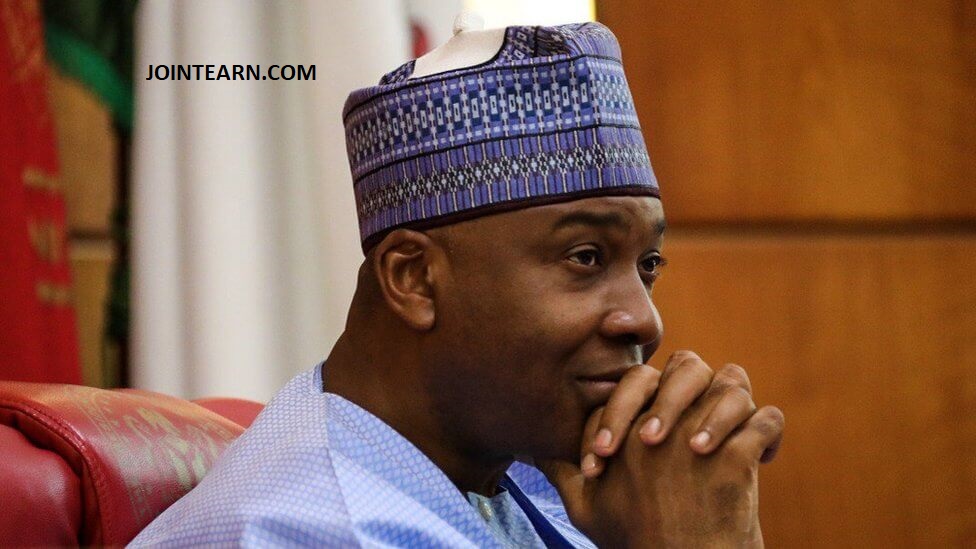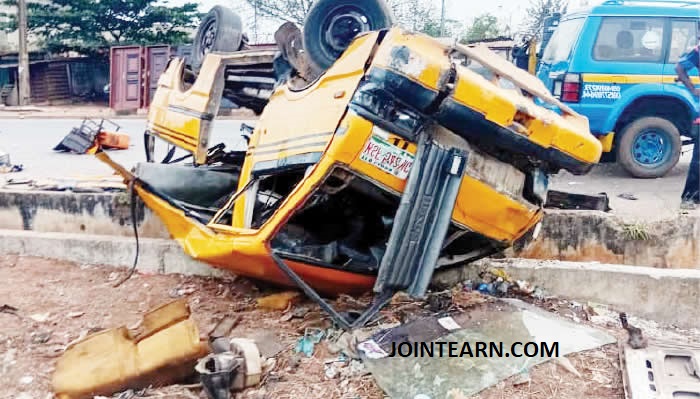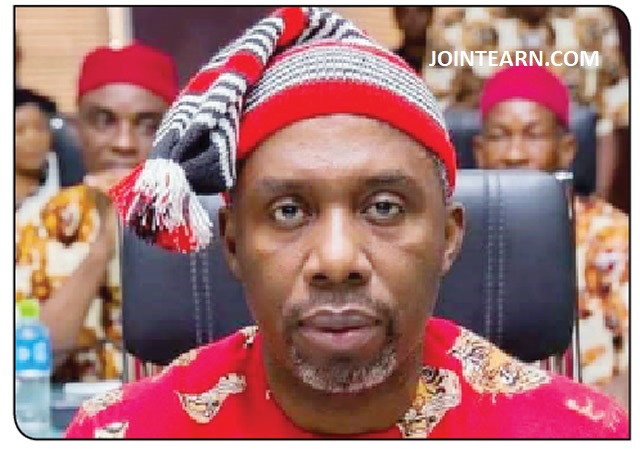In the face of ongoing defections from the Peoples Democratic Party (PDP) to rival parties, former Senate President Bukola Saraki has offered a calm yet firm response, describing the ongoing political shifts within the party as a “rebirth” rather than a crisis. Saraki emphasized that those members who are dissatisfied with the party’s direction are welcome to leave, as the PDP remains committed to rebuilding and strengthening its position ahead of future elections.
Speaking to journalists in Abuja on Wednesday, Saraki expressed confidence in the PDP’s future and reiterated that the party was undergoing a necessary transformation, one that would ultimately lead to stronger leadership and a renewed sense of purpose. His comments come amidst growing defections by key figures from the PDP, a trend that has raised concerns about the party’s ability to maintain its dominance in Nigerian politics.
‘PDP is Not in Crisis,’ Says Saraki
Saraki, who played a key role in the PDP’s affairs during the 2019 and 2023 general elections, stated that the ongoing defections are simply part of the natural evolution of any political party, especially in a dynamic political landscape like Nigeria’s.
“The PDP is not in crisis; we are merely undergoing a process of rebirth,” Saraki said. “This is a time of change, a time of reassessment, and we are committed to ensuring that the party remains focused on its core values—good governance, national unity, and the welfare of the people.”
Saraki’s response comes in the wake of a series of defections from the PDP to other political parties, particularly the ruling All Progressives Congress (APC). Key figures within the PDP, including prominent governors and lawmakers, have been increasingly moving to the APC, citing disagreements over the party’s leadership and strategy.
Despite these defections, Saraki maintained that the PDP remains a strong force in Nigerian politics and that it will continue to attract new leadership and ideas. He added that any member who feels their values no longer align with the party should be free to leave.
“If people feel that the PDP no longer represents their aspirations or political direction, then they are free to leave,” Saraki said. “The PDP will continue to evolve and attract new members who believe in the party’s vision for a better Nigeria.”
A Rebirth of Leadership and Ideology
Saraki further explained that the defections should be viewed as part of a natural process of political realignment, with the PDP needing to refresh its leadership and refine its ideological focus. He highlighted that the party has always gone through periods of challenge and transformation, and this moment should not be seen as an existential threat.
“The PDP has been through difficult periods before, and it has always emerged stronger,” Saraki noted. “Every time the party faced a major challenge, it found a way to overcome it, reinvigorate its leadership, and come back stronger. This is no different. Our focus now is on rebuilding the party and creating a platform that appeals to the majority of Nigerians.”
Saraki also called for unity within the PDP, urging members to remain committed to the party’s core values and the goal of providing a credible alternative to the APC. He stressed that the PDP’s foundation was built on inclusivity, social justice, and national development—principles that he believes remain relevant today.
‘It’s a Matter of Political Strategy’
When asked about the defections of influential figures, including governors and lawmakers, Saraki pointed out that defections are a common occurrence in Nigerian politics, especially in the run-up to elections. He suggested that these defections were largely driven by political strategy, as individuals assess their political fortunes and seek the party that offers them the best chance of success.
“Politics is about strategy and survival,” Saraki explained. “People make decisions based on what they believe is best for their future. If they believe they will have a better chance in another party, then they will move. But that does not mean that the PDP is finished. On the contrary, we are focused on rebuilding and offering a real alternative.”
Saraki emphasized that the PDP will not shy away from the challenges posed by these defections. He noted that while it may be difficult to lose experienced members, the party must remain forward-thinking and proactive in its approach.
“It’s unfortunate when we lose good people, but the PDP is bigger than any one individual,” he said. “We will not allow defections to distract us from our goal of building a united and strong opposition capable of offering the Nigerian people better governance.”
A Time of Change for the APC as Well
Saraki also pointed out that defections are not exclusive to the PDP. He remarked that the APC, which has seen some gains as a result of PDP members moving to its fold, is also undergoing significant changes in leadership and direction.
“The APC is not immune to the changes happening in Nigerian politics,” Saraki said. “They are facing their own challenges, and we have seen that there are growing divisions within their ranks as well. Political parties in Nigeria are all constantly evolving, and we should expect that the current wave of defections is just a part of the larger political dynamics.”
He also questioned the long-term stability of the APC, suggesting that defections from the PDP might only be temporary alliances for some members who may eventually seek new political homes once the 2027 elections approach.
Building for the Future
Looking ahead, Saraki urged the PDP to remain focused on the long term. He outlined several areas that the party would prioritize in the coming months, including organizational restructuring, outreach to younger voters, and redefining its message to address the concerns of ordinary Nigerians.
“The PDP must build on its historical strengths, which include its ability to unite Nigerians across ethnic and regional lines,” Saraki said. “The party must reach out to the youth, who are increasingly disillusioned with the status quo. We must also strengthen our grassroots base and ensure that the voices of ordinary Nigerians are heard in the party’s policies.”
Saraki concluded by calling on all PDP members to unite for the common good, asserting that despite the defections, the PDP remains the most viable alternative to the APC in the country. He also urged the party to take the necessary steps to rebuild and refocus, ensuring that it is ready to challenge the APC in future elections.
“Despite the current challenges, we are committed to rebuilding the PDP and ensuring that it remains the party that can offer Nigerians a better future,” Saraki said.
Conclusion
Bukola Saraki’s response to the ongoing defections within the PDP paints a picture of resilience and hope for the party’s future. While acknowledging the challenges ahead, Saraki’s message is one of optimism and determination, emphasizing that the PDP’s evolution will ultimately make it stronger and better positioned to provide a viable alternative to the ruling APC. As the party undergoes this rebirth, the coming months will be crucial in determining whether the PDP can maintain its relevance and rebuild its political base ahead of the 2027 elections.












